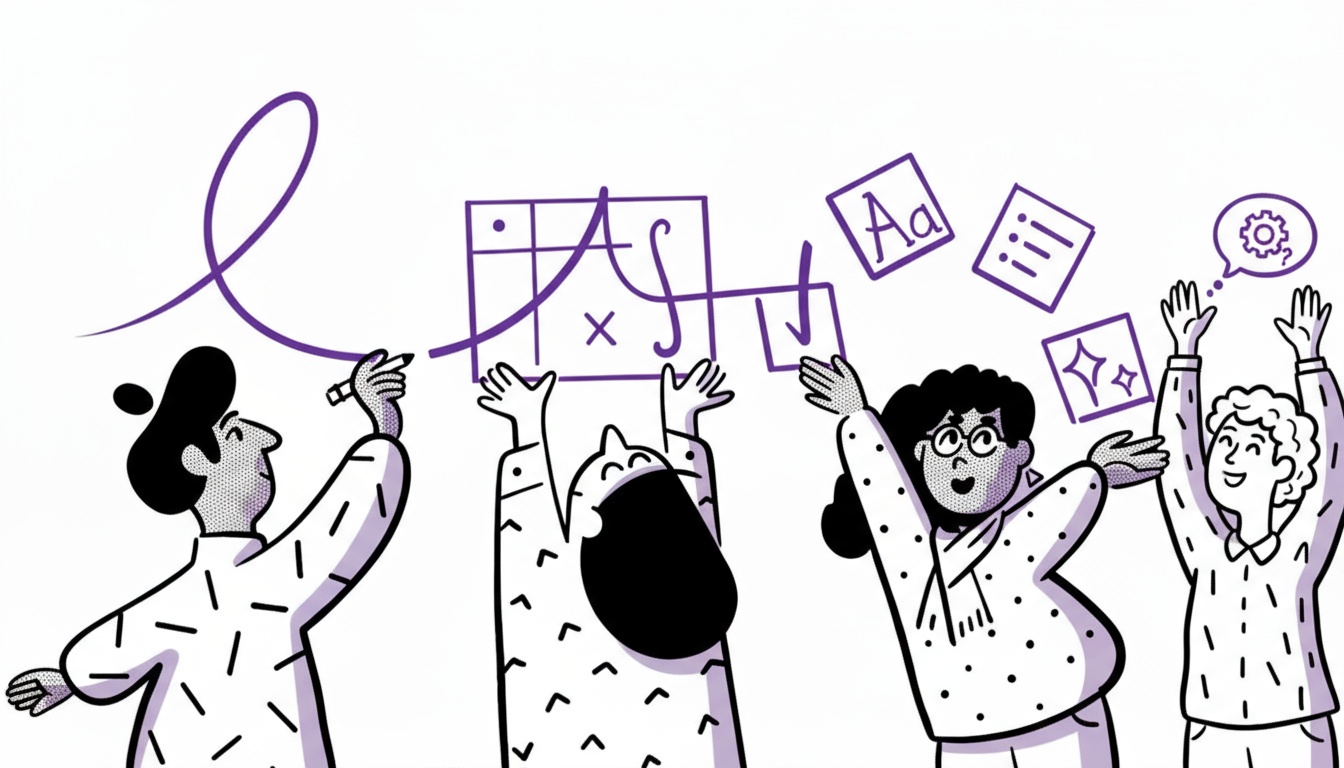

Saba Sohail
Tue Nov 04 2025
6 mins Read
AI tools in 2026 are the backbone of operations in finance, creativity, documentation, sales, and HR. And while good ones power productivity and output, the best AI tools for enterprises push automation and scalable growth.
10 Best AI Tools for Enterprises
1. ImagineArt
ImagineArt is an AI creative suite for enterprises that want to accelerate and centralize all their content creation from product photography to marketing videos and sizzle reels under one intelligent interface.
It combines AI image generation, AI video generation, AI-powered image editing and a node-based workflow system via Imagine Flow. The interface is best for large creative teams that need scalable, repeatable processes.
ImagineArt is one of the best AI tools for enterprises because it brings together generative AI, team collaboration and workflow automation. Marketing teams can generate campaign visuals and advertisement videos, designers can refine assets with photo compositing, and managers can approve assets directly in collaborative spaces.
ImagineArt also supports AI model training, so brands train custom products and character models to ensure visual consistency across campaigns.
With team plans, shared asset libraries, and multi-modal capabilities (supporting top-tier models like Veo 3.1, Sora 2, and Kling 2.5 Turbo), it bridges the gap between creative experimentation and enterprise-level production.
For enterprises, ImagineArt becomes a creative operations engine that unites creation, branding, and design automation under one unified platform.
2. Notion AI
Notion AI transforms the way enterprises manage knowledge, plan projects, and document processes.
It merges AI-powered writing assistance with collaborative workspaces that allow distributed teams to build structured systems for notes, wikis, and documentation.
For enterprise use, Notion’s value is in its flexibility and scalability. From OKR dashboards to internal SOPs, teams can automate summaries, generate meeting notes, and even turn entire project logs into polished reports using AI. It reduces the cognitive load of documentation and ensures information stays accessible and searchable across the organization.
The Notion AI Enterprise plan offers advanced permissions, SSO (single sign-on), and data residency options, which makes it a secure and compliant knowledge management solution.
In short, Notion AI helps enterprises streamline communication, preserve institutional knowledge, and empower every department with clarity and speed.
3. Zapier AI
Zapier AI is one of the most essential and best AI tools for enterprises because everything is powered by AI. And Zapier brings AI automation to enterprise workflows at scale.
It connects over 6,000+ business apps, so enterprises can automate repetitive tasks across marketing, sales, operations, and finance.
With the addition of AI-driven logic and natural language automation, Zapier now enables employees to describe what they want to automate and the system builds the workflow for them. For enterprises, this means reduced development dependency and faster digital transformation.
From syncing CRM leads to Slack, automating invoice processing, or integrating AI data pipelines, Zapier AI saves thousands of hours in manual work every quarter.
In large organizations, Zapier AI becomes the invisible backbone of operational efficiency and helps teams spend less time managing systems and more time on strategic execution.
4. Microsoft Copilot for 365
Microsoft Copilot is also one of the best AI tools for enterprises. Its enterprise-grade AI assistant integrated directly in 365 into tools employees already use in apps like Word, Excel, PowerPoint, Outlook, and Teams.
For enterprises, Copilot’s impact is massive: it automates document creation, transforms bullet points into full presentations, summarizes meetings, and analyzes complex datasets instantly within Excel. By embedding AI into the existing Microsoft ecosystem, it minimizes friction and maximizes adoption.
Security is another strength — it inherits Microsoft’s enterprise-level compliance and privacy protections, making it a trusted AI companion for regulated industries.
Essentially, Copilot redefines enterprise productivity, turning every employee into a more efficient, data-driven decision-maker.
5. HubSpot AI
HubSpot AI brings intelligence into every part of the enterprise customer journey from marketing, sales, to customer success.
As one of the best AI tools for enterprises, large corporations use it to for managing campaigns, predict lead scores, analyze sales pipelines, and automate email personalization at scale. The AI-powered CRM helps teams understand customer intent and forecast conversions with precision.
For marketing teams, it streamlines blog writing, ad copy, and landing pages with built-in AI writing tools. For sales, it automates deal follow-ups and conversation summaries.
With its unified data architecture and deep AI integration, HubSpot AI ensures enterprises can turn data into actionable insights, improving both acquisition and retention.
6. DataRobot / Akkio
DataRobot and Akkio both are best AI tools for enterprises because they empower companies to make AI-driven business decisions. These tools use predictive analytics and automated machine learning.
DataRobot works for data-heavy enterprises as in finance, manufacturing, and healthcare. This is where custom AI models forecast trends, detect anomalies, or optimize logistics.
Akkio, on the other hand, offers no-code AI modeling and makes predictive analytics accessible to business teams without deep data expertise.
The enterprise value lies in their speed to insight: decisions that once took weeks of manual analysis can now be automated in hours.
Both platforms enhance strategic planning and drive measurable ROI by identifying growth or risk patterns hidden in company data.
7. Figma
Figma has evolved from a design tool to a collaborative creative hub for enterprises. With AI now integrated into its workflow, teams can generate wireframes, suggest design alternatives, and automate repetitive layout tasks.
Enterprise teams benefit from real-time collaboration, design system governance, and version control which is important for maintaining brand consistency across large organizations.
Its Figma Enterprise plan includes granular access controls, single sign-on, and advanced analytics, ensuring designs stay secure and compliant which actually makes Figma one of the best AI tools for enterprises.
In combination with generative AI tools for design like ImagineArt, Figma becomes the visual nerve center of the enterprise because it unites product, design, and marketing around a single creative source.
8. Productboard AI
Productboard AI helps enterprises align their product vision with customer needs using data-backed insights. The platform collects feedback from multiple channels, identifies trends, and uses AI to recommend which features to prioritize.
For large enterprises managing complex product portfolios, Productboard brings structure and connect product roadmaps directly to customer impact.
The AI assistant helps product managers summarize feedback, categorize requests, and justify decisions with evidence. With role-based collaboration, it ensures every stakeholder, from engineering to marketing, stays aligned around a unified roadmap.
For enterprises, it’s the ultimate product intelligence layer that keeps innovation aligned with strategy.
9. Gamma
While being an essential now, Gamma is also one of the best AI tools for enterprises because it reimagines company presentations and corporate documentation using AI.
Gamma converts plain ideas, notes, or outlines into visually stunning decks and knowledge documents, in minutes, not hours.
For enterprises, Gamma improves communication velocity, for investor decks, training modules, or internal reports. Its AI templates automatically adapt to brand styles, ensuring on-brand storytelling across departments.
Teams can collaborate in real time, annotate slides, and publish living documents that update dynamically, eliminates the version chaos of traditional slide decks.
Gamma empowers enterprises to communicate faster, more beautifully, and more intelligently.
10. UiPath / Automation Anywhere
UiPath and Automation Anywhere are the cornerstones of enterprise automation. These platforms use AI-powered bots to perform repetitive back-office operations for example HR onboarding to invoice reconciliation.
These best AI tools for enterprises unlock massive productivity gains by freeing up human workers from routine administrative tasks. With built-in analytics, enterprises can monitor automation ROI and identify further process optimizations.
Both tools integrate with major ERPs (like SAP and Oracle), ensuring smooth enterprise-scale deployment.
In short, UiPath and Automation Anywhere enable enterprises to scale operations efficiently, minimize errors, and maintain compliance through intelligent automation.
Replace 8+ Design and Creative Apps with ImagineArt
ImagineArt generates images, videos, audio, music, avatars, advertisements, sizzle reels, marketing visuals, vision boards, brand identity and everything your creative department produces. It has team collaboration features and you can start ideation and go for final production within the same window.
Recommended Read:
AI Tools Best AI tools for Business AI filmmaking tools

Saba Sohail
Saba Sohail is a Generative Engine Optimization and SaaS marketing specialist working in automation, product research and user acquisition. She strongly focuses on AI-powered speed, scale and structure for B2C and B2B teams. At ImagineArt, she develops use cases of AI Creative Suite for creative agencies and product marketing teams.